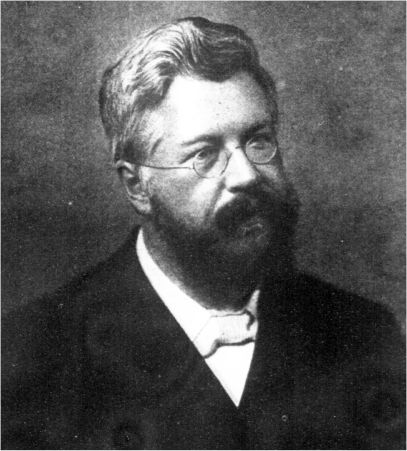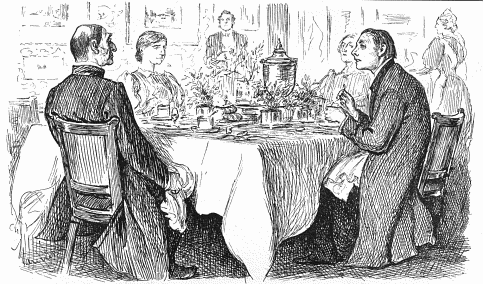|
Adrian Ross
Arthur Reed Ropes (23 December 1859 – 11 September 1933), better known under the pseudonym Adrian Ross, was a prolific writer of lyrics, contributing songs to more than sixty British musical comedies in the late 19th and early 20th centuries. He was the most important lyricist of the British stage during a career that spanned five decades. At a time when few shows had long runs, nineteen of his West End shows ran for over 400 performances. Starting out in the late 1880s, Ross wrote the lyrics for the earliest British musical theatre hits, including '' In Town'' (1892), ''The Shop Girl'' (1894) and '' The Circus Girl'' (1896). Ross next wrote the lyrics for a string of hit musicals, beginning with '' A Greek Slave'' (1898), ''San Toy'' (1899), '' The Messenger Boy'' (1900) and '' The Toreador'' (1901) and continuing without a break through World War I. He also wrote the English lyrics for a series of hit adaptations of European operettas beginning with ''The Merry Widow'' ... [...More Info...] [...Related Items...] OR: [Wikipedia] [Google] [Baidu] |
Clapton, London
Clapton is a district of East London, England, in the London Borough of Hackney. Clapton is divided into Upper Clapton, in the north, and Lower Clapton to the south. Clapton railway station lies north-east of Charing Cross. Geography and origins The hamlet of Clapton emerged in the manor and Ancient Parish of Hackney. Origins The hamlet of Clapton was, from 1339 (when first recorded) until the 18th century normally rendered as Clopton, meaning the "farm on the hill". The Old English ''clop'' - "lump" or "hill" - presumably denoted the high ground which rises from the River Lea. Clapton grew up as a linear hamlet along the road subsequently known as Lower and Upper Clapton Road. As the area became urbanised, the extent of the area called Clapton eventually increased to encompass most of the north-eastern quarter of Hackney. Scope Because Clapton has never been an administrative unit, it has never had any defined boundaries, though the E5 postcode area (established in 1917) has ... [...More Info...] [...Related Items...] OR: [Wikipedia] [Google] [Baidu] |
Punch (magazine)
''Punch, or The London Charivari'' was a British weekly magazine of humour and satire established in 1841 by Henry Mayhew and wood-engraver Ebenezer Landells. Historically, it was most influential in the 1840s and 1850s, when it helped to coin the term " cartoon" in its modern sense as a humorous illustration. From 1850, John Tenniel was the chief cartoon artist at the magazine for over 50 years. After the 1940s, when its circulation peaked, it went into a long decline, closing in 1992. It was revived in 1996, but closed again in 2002. History ''Punch'' was founded on 17 July 1841 by Henry Mayhew and wood-engraver Ebenezer Landells, on an initial investment of £25. It was jointly edited by Mayhew and Mark Lemon. It was subtitled ''The London Charivari'' in homage to Charles Philipon's French satirical humour magazine ''Le Charivari''. Reflecting their satiric and humorous intent, the two editors took for their name and masthead the anarchic glove puppet, Mr. Punch, of Punc ... [...More Info...] [...Related Items...] OR: [Wikipedia] [Google] [Baidu] |
Marion Hood
Marion Hood (1 April 1854 – 14 August 1912) was an English soprano who performed in opera and musical theatre in the last decades of the 19th century. She is perhaps best remembered for creating the role of Mabel in Gilbert and Sullivan's ''The Pirates of Penzance'' in London. Early life and career Born Sarah Ann Isaac in Liverpool. Hood was a music hall performer as a child by the age of 11 under the name Marion Isaac. She married a Mr. Hunt of the Alhambra Palace Music Hall in Kingston upon Hull. In 1876, she had moved to London to study singing at the Royal Academy of Music. Her husband had died by 1880."''The Pirates'' in London" '''', 20 April 1880 ... [...More Info...] [...Related Items...] OR: [Wikipedia] [Google] [Baidu] |
Arthur Roberts (comedian)
Arthur Roberts (21 September 1852 – 27 February 1933) was an English comedian, music hall entertainer and actor. He was famous for portraying the pantomime dames and later for his comic characters and "gagging" in farces, burlesques and musical comedies. He is credited with coining the word "spoof". Biography Early life and career Roberts was born in Kentish Town, London,Baker, p. 49 the son of a Savile Row tailor who attended to Edward, Prince of Wales. His father's death when Roberts was 12 left the family in "a grim struggle for existence".Roberts, p. 4 Roberts walked three miles a day to work in a seed shop in Covent Garden. He joined a choral society and sang at the Crystal Palace. Roberts began performing professionally in 1871 after being persuaded to sing by an impresario from Norfolk who was busking near Roberts' home in Bayswater. He performed "The Mad Butcher", which he was later paid £1 a week to sing on the beach at Great Yarmouth. The following summer, R ... [...More Info...] [...Related Items...] OR: [Wikipedia] [Google] [Baidu] |
George Edwardes
George Joseph Edwardes (né Edwards; 8 October 1855 – 4 October 1915) was an English theatre manager and producer of Irish ancestry who brought a new era in musical theatre to the British stage and beyond. Edwardes started out in theatre management, soon working at a number of West End theatres. By the age of 20, he was managing theatres for Richard D'Oyly Carte. In 1885, Edwardes became a manager at the Gaiety Theatre with John Hollingshead, who soon retired. For the next three decades, Edwardes ruled a theatrical empire including the Gaiety, Daly's Theatre, the Adelphi Theatre and others, and sent touring companies around Britain and abroad. In the early 1890s, Edwardes recognised the changing tastes of musical theatre audiences and led the movement away from burlesque and comic opera to Edwardian musical comedy. Life and career Edwardes was born at Great Grimsby, Lincolnshire, England. He was the eldest of four sons and three daughters of James Edwards, comptroller of c ... [...More Info...] [...Related Items...] OR: [Wikipedia] [Google] [Baidu] |
Opera Comique
The Opera Comique was a 19th-century theatre constructed in Westminster, London, between Wych Street, Holywell Street and the Strand. It opened in 1870 and was demolished in 1902, to make way for the construction of the Aldwych and Kingsway. The theatre was built cheaply as a speculative venture, and was known as one of the "rickety twins" along with the adjacent Globe Theatre. Numerous managements presented plays in English, French and German, and the house was also used for extravaganzas and English versions of French opéras bouffes. It is best remembered as the theatre where several early Gilbert and Sullivan operas had their first runs, between 1877 and 1881. History Background and early years In the 16th century Lyon's Inn, one of the Inns of Chancery attached to London's Inner Temple, stood on the site. By the 1860s the area had deteriorated greatly, and the old inn had been converted into what the historians Mander and Mitchenson describe as "dwellings of a dubious n ... [...More Info...] [...Related Items...] OR: [Wikipedia] [Google] [Baidu] |
Victorian Burlesque
Victorian burlesque, sometimes known as travesty or extravaganza, is a genre of theatrical entertainment that was popular in Victorian era, Victorian England and in the New York theatre of the mid-19th century. It is a form of parody music, parody in which a well-known opera or piece of classical theatre or ballet is adapted into a broad comic play, usually a musical play, usually risqué in style, mocking the theatrical and musical conventions and styles of the original work, and often quoting or pastiche, pastiching text or music from the original work. Victorian burlesque is one of several forms of burlesque. Like ballad opera, burlesques featured musical scores drawing on a wide range of music, from popular contemporary songs to operatic arias, although later burlesques, from the 1880s, sometimes featured original scores. Dance played an important part, and great attention was paid to the staging, costumes and other spectacular elements of stagecraft, as many of the pieces we ... [...More Info...] [...Related Items...] OR: [Wikipedia] [Google] [Baidu] |
Arthur Law (playwright)
William Arthur Law (22 March 1844 – 2 April 1913), better known as Arthur Law, was an English playwright, actor and scenic designer. Life and career Law was born in Northrepps, Norfolk, England, to Rev. Patrick Comerford Law and his wife, Frances ''nee'' Arbuthnot. He was educated at the Royal Military College, Sandhurst. From 1864 to 1872, he served in the Royal Scots Fusiliers. Early career Law began to act, making his professional stage debut in 1872 at the Theatre Royal, Edinburgh. He then toured the British provinces and played at London's Surrey Theatre for two years, after which joined the German Reed Entertainments in London in 1874. While performing with the German Reeds, he wrote nineteen short comic theatre works performed by the company. In 1877, Law married actress Fanny Holland, with whom he appeared with the German Reeds at the Gallery of Illustration and St. George's Hall. The couple had a son named Hamilton Patrick John Holland Law (born 1879). S ... [...More Info...] [...Related Items...] OR: [Wikipedia] [Google] [Baidu] |
Academia
An academy (Attic Greek: Ἀκαδήμεια; Koine Greek Ἀκαδημία) is an institution of secondary education, secondary or tertiary education, tertiary higher education, higher learning (and generally also research or honorary membership). The name traces back to Plato's school of philosophy, founded approximately 385 BC at Akademia, a sanctuary of Athena, the goddess of wisdom and Skills, skill, north of Ancient Athens, Athens, Greece. Etymology The word comes from the ''Academy'' in ancient Greece, which derives from the Athenian hero, ''Akademos''. Outside the city walls of Athens, the Gymnasium (ancient Greece), gymnasium was made famous by Plato as a center of learning. The sacred space, dedicated to the goddess of wisdom, Athena, had formerly been an olive Grove (nature), grove, hence the expression "the groves of Academe". In these gardens, the philosopher Plato conversed with followers. Plato developed his sessions into a method of teaching philosophy and in 3 ... [...More Info...] [...Related Items...] OR: [Wikipedia] [Google] [Baidu] |
Cambridge University
, mottoeng = Literal: From here, light and sacred draughts. Non literal: From this place, we gain enlightenment and precious knowledge. , established = , other_name = The Chancellor, Masters and Scholars of the University of Cambridge , type = Public research university , endowment = £7.121 billion (including colleges) , budget = £2.308 billion (excluding colleges) , chancellor = The Lord Sainsbury of Turville , vice_chancellor = Anthony Freeling , students = 24,450 (2020) , undergrad = 12,850 (2020) , postgrad = 11,600 (2020) , city = Cambridge , country = England , campus_type = , sporting_affiliations = The Sporting Blue , colours = Cambridge Blue , website = , logo = University of Cambridge logo ... [...More Info...] [...Related Items...] OR: [Wikipedia] [Google] [Baidu] |




.jpg)




